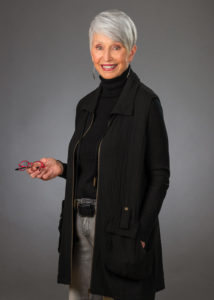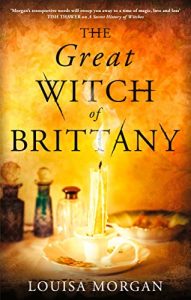Things You Didn’t Know About Writing What We Know: Louisa Morgan
Writing What We Know
 The oldest bit of writing advice I know of is to “write what you know.” It’s still good advice, though a bit long in the tooth! It will serve you best if you understand what it is you know that will interest readers. It’s important to be aware that what may seem common knowledge to us writers can be unfamiliar and intriguing to other people.
The oldest bit of writing advice I know of is to “write what you know.” It’s still good advice, though a bit long in the tooth! It will serve you best if you understand what it is you know that will interest readers. It’s important to be aware that what may seem common knowledge to us writers can be unfamiliar and intriguing to other people.
I learned this with my first novel. I was still a working musician when it was published, a classical concert and opera singer, and I filled my book with quotidian musical details, elements of music I worked with every day. I couldn’t help it. Those were things I knew. However, even while writing the novel, I worried these details would be boring and obvious, that everyone who had ever had piano lessons or played in the school band would roll their eyes at them.
I was wrong. They turned out to fascinate some readers, and readers who knew something about music were often the most enthusiastic. They saw themselves in my story of singers keeping their people warm on an ice planet!
I found out, as I added to my bibliography, that I didn’t need to be writing about music in order to use such small, ordinary details. All my fiction benefited from them.
I’ve been publishing for some time now. I’ve met a lot of writers, and every single one had, or still has, another occupation besides writing. I count among my writing colleagues a family physician, a copyright lawyer, a neonatal ICU nurse, several teachers, two sommeliers, a few IT professionals, and on and on. Their non-writing work colors their writing, often in ways they may not recognize. My own non-writing work, particularly in opera, does exactly that, although it took me several completed books to realize it.
There is great benefit in being able to identify what you know and how your knowledge—conscious or subconscious—strengthens and inspires your writing. If you recognize it in your process, you come to trust it. If a critique suggests you change something that your special instinct or knowing brought to your work, you will believe in yourself enough to decide whether to accept or dismiss (with thanks) the criticism.
I had the good fortune to work closely with a gifted conductor from whom I learned more than I could sum up in a brief essay. He was the one who told me the writing business was no different from the singing business, and he was right. He also shared a quirk of mine, which is a little hard to describe.
When a piece of writing is right, when it has struck the right tone and rhythm and pace, I feel as if a little buzzer goes off, right in my solar plexus. I acquired that imaginary buzzer in my musical life, assuring me that an aria or a song had gone well. For my conductor friend, that spot is just under his left shoulder, a slightly different sensation, but the same physical manifestation of satisfaction in what we’ve created. Silly, maybe, but because he and I had the same experience, albeit in different locations, I came to trust my buzzer. When my solar plexus tingles, I know I’ve made the sentence or the paragraph or the scene work. I trust it, which means I trust myself, a great asset for a writer.
I used to joke that anyone who wanted to be a novelist should first be an opera singer (don’t try this at home—it’s harder than it looks. But still.) Opera taught me the scena, the construction of a dramatic scene. It taught me pacing, and building tension, and creating drama. Music itself taught me the rhythm of the written word, the balance of light and heavy, slow and fast. Most of all, it taught me to listen, which is why I always, always read my work aloud, to my dog if no one else is available. (Spoiler alert: he likes everything. Not a critic.) And I love it when my solar plexus tingles.
So I encourage everyone to write what they know. Are you a great cook? Use the sensory prompts, smell, taste, visual appearance, all the small things that add up to a wonderful meal—even if you’re not writing specifically about food. Are you a psychologist? Make your characters complex, unusual, compelling. You don’t need to be writing a story in which psychology figures prominently, but your knowledge of it, your awareness of the vagaries of the human mind, will be there in your story. Do you work in a service industry? Use the anecdotes and insights you have to illuminate your side of the picture for the rest of us. You may be surprised how fascinating behind-the-scenes details are for readers.
These are the elements I look forward to in fiction. I love the insider’s view. What seems mundane to you—the glimpse behind the doctor’s stethoscope, the inside story of what happens in a judge’s chambers, what it’s like to be backstage while an opera is going on—may be exactly what makes a reader keep turning pages.
What is it you know that I don’t, that will make me care about your characters and their lives? Use that. I guarantee there’s an audience for it.
—
Louisa Morgan lives and writes and rambles with her Border Terrier along Lake Pend Oreille in Scenic Idaho. A musician and a yogini, she finds time to teach workshops here and there and she finds inspiration in the woods and mountains and waters of the Northern Panhandle.
THE GREAT WITCH OF BRITTANY, Louisa Morgan
BUY HERE
Category: How To and Tips

























